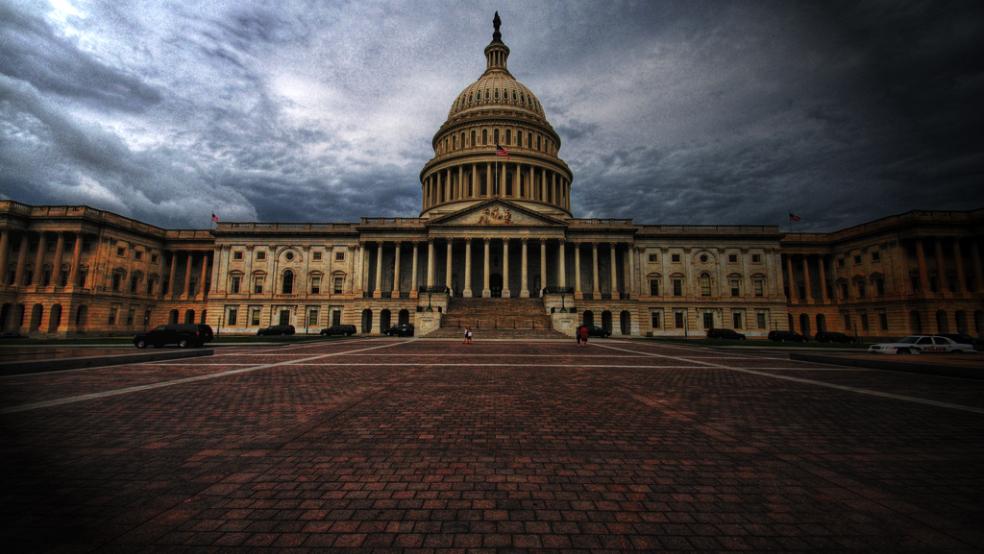In addition to the presidential contenders at the top of Tuesday's ballots, Democratic voters will weigh in on three Senate primary races that could decide which party controls the upper chamber of Congress for the next two years.
Republicans now hold a slender 54-to-46 seat edge, and Democrats are hoping to regain a slender majority by displacing a handful of Republicans in blue-leaning states.
Illinois and Ohio are top-tier targets. A third race, North Carolina, could gain importance in the months ahead, as Democrats believe they can expand the electoral map and put Republicans on the defensive if Donald Trump is at the top of the GOP ticket. A new hard-hitting ad from the Democratic Senatorial Campaign Committee chastises Republican incumbents for saying they would support the billionaire if he wins the nomination.
Related: Here's What Happens if Trump Wins Ohio
Here’s what’s at stake in states holding primaries today:
Illinois: Incumbent Mark Kirk is considered to be the single most vulnerable Senate Republican running for re-election in 2016, though he’s expected cruise to victory in Tuesday’s GOP primary. Even if he does, though, he stands to face a tough general election opponent on in Rep. Tammy Duckworth.
Duckworth, a double amputee who fought in Iraq, is expected to defeat Andrea Zopp, a former prosecutor who has gained the endorsements of the Chicago Sun-Times and several leaders in Chicago’s African-American community. A Chicago Tribune poll released last week found Duckworth with a whopping 64-point lead over Zopp, 72 percent to 8 percent. A general election survey conducted last July found Duckworth ahead of Kirk by six points.
Ohio: Former Buckeye State Democratic Governor Ted Strickland is on track to defeat Cincinnati city councilman P.G. Sittenfield. Despite lagging far behind in the polls, Sittenfield has given Strickland, 74, a spirited challenge, earning the endorsement of the state’s two largest papers and pressing the former state executive on his gun control record.
Related: Why the Democratic Presidential Race Will Drag On for Months
The winner will take on Republican Rob Portman, who is expected to dispense with his own primary challenger on Tuesday. A Real Clear Politics average of polls finds a tight general election race, with Strickland, who has been endorsed by President Obama, ahead of Portman, 42.5 percent to 41 percent. The contest is sure to remain tight throughout Election Day; the GOP is holding its national convention in Cleveland this summer, and Ohio has long played a deciding role in presidential campaigns.
North Carolina: Former state lawmaker Deborah Ross is expected to beat two Democratic challengers for the chance to face Senate Intelligence Committee chair Richard Burr.
A survey by the left-leaning Public Policy Polling released this week found Burr, elected to the Senate in 2004, with a six point lead over Ross.
Florida. Despite Tuesday’s GOP primary likely marking the end of Marco Rubio’s presidential campaign, the Sunshine State won’t vote on his successor for months.
Rubio decided not to seek re-election so he could devote his time and energy to running for the White House. We know how that worked out. While the 44-year-old Rubio will have to figure out what he does next, Florida voters will vote in primaries on August 30 to pick the candidates running to succeed him.
Related: The Five Most Endangered Senate Republicans
The race is becoming particularly contentious on the Democratic side. Earlier this month Obama endorsed Patrick Murphy, a second-term congressman and former Republican, who Democrats feel can give them a win in the critical swing state.
But Murphy first has to beat liberal congressman Alan Grayson, who made national headlines by saying the Republican health care plan is to "die quickly" if people get sick and is being investigated by the House Ethics Committee over questions related to hedge funds he manages.
Senate Minority Leader Harry Reid (D-NV) has called on Grayson to drop out of the race and Vice President Joe Biden is due to campaign with Murphy later this month, promising many awkward moments between now and November.
The picture is less clear on the Republican side, where five candidates are after the open seat. What little polling has been done shows Rep. David Jolly, who has pledged not to personally ask for campaign funds and is pushing legislation that would bar all House members from doing so, leading the crowded field.





